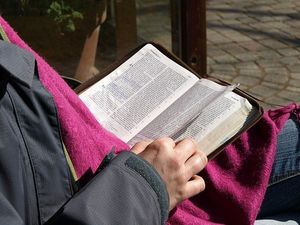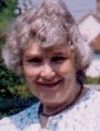A divine irony
With an ominous rattle of wheels and the crack of a whip, a cart was driven through the gates of an Edinburgh hospital. Another casualty was being rushed in, a man critically injured in some industrial accident.
With the lower half of his body horribly crushed, he was in desperate pain. There seemed little hope of saving his life.
Dr William Mackay, a senior Edinburgh doctor in the 1860s, with a reputation for success in such emergencies, hurried to the scene. Surely, thought he, with a rush of adrenalin, he was just the right man for the situation.
Such a conquest over the course of nature gave him yet another opportunity to glory in his own prowess and to gain the admiration of his colleagues.
An avowed atheist, Mackay believed that each time he managed to drag yet another patient back from the gates of death, it proved his theory that man was indeed the master of his own destiny and God a mere irrelevancy.
Atheist
A leading member of a society known as the Infidel Club, he openly and coarsely disparaged all Christian values. But it had not always been so. Born in 1839, William Mackay was brought up in a family where God was loved and the Scriptures honoured.
When the young man left his Montrose home to begin his medical studies, his mother gave him a parting gift – a Bible. Carefully she had inscribed it with both his name and hers, together with a Scripture verse to be a guiding beacon for her son’s new life.
Week after week the Bible lay neglected in his room gathering dust, as young William mixed with society far different from all he had known at home. His new friends had no time for the truths William had been taught to value and gently mocked him for his naivety.
Gradually the young man began to entertain doubts about the Christian faith himself and, before long, he too was laughing at the beliefs his parents held dear. Throwing aside all restraints he indulged a careless lifestyle, becoming addicted to a regular tot of whisky until it became his master.
When his student finances could no longer support his indulgences, his thoughts turned to ways of raising extra cash. He remembered the local pawnbroker. Was there anything he could pawn? His eyes fell on the Bible. That would surely fetch an excellent sum!
Telling himself that he would soon be able to redeem it and hardening his heart against the one whose hand had inscribed it, William took the Bible to the pawn shop. Now he could afford more whisky. But far from redeeming the Bible, he soon forgot all about it.
As the years passed, Mackay excelled in his chosen career despite his lifestyle, earning a prominent position in an Edinburgh hospital.
Diagnosis
As he stood weighing up the new arrival’s injuries, his spirit rose to the challenge. Then the patient suddenly spoke. Despite his pain his words were calm and measured. ‘What is the diagnosis, doctor?’
‘Oh, I guess we will pull you through’, replied Mackay with a cheerful chuckle.
‘No, doctor’, replied the man, ‘I don’t want any guess. I want to know if it is life or death’.
Mackay glanced in amazement at his patient. He had seen many with faces twisted and distorted in agony, but here was one enduring intense suffering, yet with a strange calm expression. ‘Just lay me down easy. Anywhere, doctor, I am ready. I am not afraid to die’.
Never had Dr Mackay heard a patient in the throes of death speak like that before. But the man had not finished. Even though his words now came slowly and with great difficulty, he continued: ‘I trust in the precious shed blood of the Lord Jesus Christ. If I have to die, I know I am going to be with him. But I would like to know the truth. Just what is my condition?’
William Mackay had indeed heard such words before; long ago – similar words spoken by his own mother. His defences began to crack. Then he blurted out, ‘You have at the most three hours to live’.
‘Thank you, doctor’, replied the man simply. Finding himself unexpectedly moved, the hardened cynic suddenly asked: ‘Is there anything special you would like us to do for you?’
The answer was now laboured and slow. ‘In one of my pockets is a two-week’s pay packet. Please could someone take it and give it to my landlady to pay for my lodgings. And yes, there is one more thing. Could you ask her to send me the book?’
The book
Book? ‘What could a dying man want with a book?’ wondered Mackay. ‘What book is that?’ he asked kindly.
‘O just the book’, the young man replied faintly. His strength had almost gone. ‘She will know’.
Issuing instructions for his patient’s care, William Mackay hurried off on his duties. If he could not gain the upper hand over the approaching power of death, he did not wish to stay.
But try as he might, he could not erase the picture of that man’s calm face. The words echoed and re-echoed in his mind. ‘I am ready, doctor, just lay me down easy. Anywhere. I am not afraid to die’.
Unafraid to die? This was a dimension William Mackay had long since blotted from his code of life. Normally he never returned to a ward once he had admitted defeat. Now he felt an irresistible urge to see what had happened to his patient. Did he get his book in time?
The nurse in charge was startled when the doctor reappeared. ‘He died a few moments ago’, she told him. ‘Did he get his book?’ asked Mackay. ‘What was it? A bank book?’
‘Yes, he got his book’, replied the nurse, ‘And no, it wasn’t a bank book. It’s still there. You may look at it if you like. It’s under his pillow’.
Dr Mackay strode across the ward and felt under the dead man’s pillow. He pulled out the book. It looked strangely familiar. A Bible!
He opened the cover and glanced at the fly leaf. There to his astonishment he read his own name, his mother’s name and the Scripture she had given him so long ago. This was the very Bible he had pawned for whisky when he had been a student.
Transformed
Stunned and shaking, William Mackay pushed the Bible inside his coat, and hurried to his private office. Locking the door, he fell on his knees and with bitter tears begged the forgiveness and mercy of God … of the God he had spurned, whose name he had despised, whose glory he had shamed.
At last he rose from his knees a new man, a deeply chastened man, a forgiven man. By a divine irony God had arrested this proud atheist, broken him down and turned his entire life around.
How could he remedy the harm he had done by his unbelief? William Mackay was acutely conscious of the debt he owed to his generation, and determined by God’s help to do all in his power to point men and women to the grace and mercy of God.
Wherever he could, he spoke to others, to his friends, his associates, to anyone who would listen to the account of the mercy God had shown to a poor sinner. Eventually in 1869 William Mackay, now 29 years of age, abandoned his successful medical career and became a preacher of that same gospel he had long tried to destroy.
Making a small church in Hull, East Yorkshire, his base, Mackay travelled the length and breadth of the country, with large crowds gathering to hear him preach.
Testimony
Only 14 short years were left to Mackay, for he died in 1885 at the age of 43, as the result of an accident.
On the last Sunday of his life he had preached on the words, ‘the glory of God’. And before the next Sunday came round, he himself was standing in the presence of the God of glory.
A hymn he wrote, which is still sung today, dwells on this theme. It is his life’s testimony:
All glory and praise
to the Lamb that was slain,
who has borne all our sins
and has cleansed every stain:
Hallelujah, yours the glory.
Hallelujah we sing!
Hallelujah, yours the glory,
our praise now we bring.
Faith Cook







